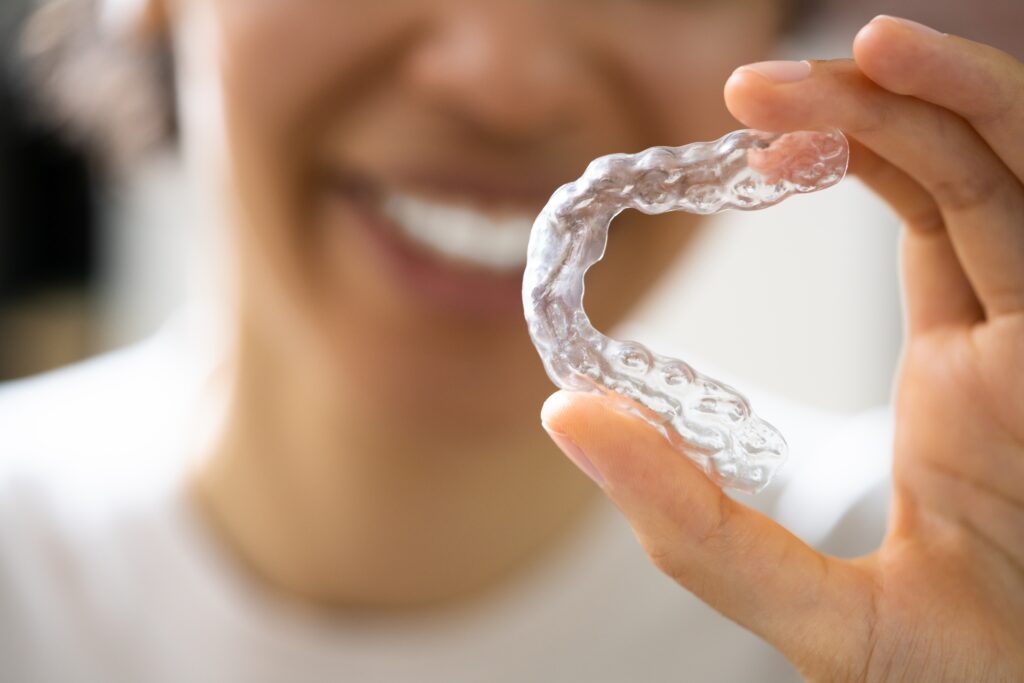Wearing a night guard splint is often recommended for individuals suffering from bruxism, TMJ disorders, and chronic jaw pain, and many residents seeking long-term dental wellness opt for a Night Guard Splint in Dubai due to the city’s advanced dental care infrastructure. Despite its proven effectiveness, compliance remains a common challenge. Patients frequently abandon night guards due to discomfort, poor fit, or lack of perceived benefit. Understanding the importance of consistent use and learning strategies for improving compliance can make all the difference in achieving long-term oral health success.
Why Wearing a Night Guard Splint Matters
Night guard splints are not just preventative tools—they’re essential for managing active dental and muscular issues. Left untreated, teeth grinding and jaw clenching can lead to enamel erosion, cracked fillings, shifting teeth, and chronic muscle pain. The splint acts as a barrier, absorbing the intense force generated while sleeping. It also repositions the jaw slightly, which can relieve pressure on the temporomandibular joints and surrounding muscles. Inconsistent use of the device undermines these benefits, making compliance critical to avoid escalating dental complications that could require more invasive treatment later.
Common Barriers to Compliance
Several factors affect patient willingness and ability to wear a night guard consistently. Discomfort is among the most cited issues, especially during the first few nights of use. Some patients feel claustrophobic or have trouble falling asleep with the appliance in place. Others abandon it due to a poorly made fit that causes sore gums or irritates soft tissue. Additionally, many stop wearing their splints prematurely once pain subsides, not realizing the appliance is still needed to prevent symptom recurrence. Addressing these barriers is key to building consistent habits and long-term success.
The Role of a Custom Fit
One of the most influential factors in night guard compliance is whether the splint is custom-made. Over-the-counter guards are more affordable but often bulky, uncomfortable, and ineffective for long-term use. A professionally fitted Night Guard Splint in Dubai is molded precisely to the contours of your teeth and bite, ensuring a snug, comfortable fit that’s easier to tolerate overnight. A well-fitted splint minimizes friction, pressure points, and slipping, which encourages regular use. Custom splints are also more durable, offering extended protection with fewer replacements needed.
Adapting to Wearing a Night Guard
Like any oral appliance, a night guard requires a short adjustment period. The first few nights may involve excess salivation, mild jaw soreness, or a foreign object sensation. These reactions are completely normal and tend to resolve within a week. Ease into it by wearing the splint for short periods before bedtime, such as while watching TV or reading. This pre-sleep exposure helps train your brain to accept the appliance as part of your nighttime routine. Avoid skipping nights during the adjustment phase, as this prolongs adaptation and reduces habit formation.
Making the Night Guard Part of Your Routine
Establishing a bedtime ritual that includes your night guard can help you stay consistent. Pairing the splint with brushing and flossing sends a signal to your brain that it’s time to wind down. Store the splint in a clean, accessible location near your toothbrush to create a visual reminder. If you use additional nighttime wellness aids such as a CPAP machine, sleep mask, or sound machine, integrate the guard as part of that comprehensive setup. When the splint becomes a seamless part of your environment, compliance naturally improves.
Proper Care and Maintenance for Continued Use
A neglected or poorly maintained splint can quickly become uncomfortable or unhygienic, leading to non-compliance. Clean the night guard every morning with a soft toothbrush and mild soap. Avoid using hot water, as it can warp the material. Store it in a ventilated case to prevent bacterial buildup. Regular inspections for cracks, buildup, or discoloration are also essential. If you notice wear or the fit changes, schedule a dental appointment for evaluation. In Dubai, many clinics offering night guard services include follow-up fittings and cleanings as part of their package, ensuring long-term usability.
Educating Yourself About the Benefits
Understanding how a night guard contributes to your oral and systemic health can significantly boost your motivation to wear it regularly. People who suffer from bruxism often aren’t aware of their nighttime habits, leading them to underestimate the need for intervention. However, untreated grinding can result in:
-
Persistent morning headaches
-
Facial and neck pain
-
Tooth sensitivity and structural damage
-
Premature aging of dental restorations
-
Disrupted sleep patterns
Once patients are educated about these risks and how a night guard mitigates them, their commitment to treatment usually improves. Seeing tangible results—like reduced pain or fewer morning headaches—also reinforces positive behavior.
Communicating with Your Dentist
If you’re struggling with wearing your night guard, don’t discontinue use without consulting your dentist. Sometimes, a simple adjustment in thickness or shape can resolve discomfort. In other cases, alternative materials may offer a softer or firmer feel depending on patient preference. Your dentist can also evaluate whether the splint is addressing your specific issue effectively or if further diagnostics are required. Clinics providing Night Guard Splint in Dubai often include digital scanning and advanced customization, which makes adjustments quicker and more precise than ever.
Final Thoughts
Wearing a night guard splint may seem like a small commitment, but its impact on your long-term oral health is significant. For those dealing with bruxism, jaw tension, or TMJ issues, consistent use of a Night Guard Splint in Dubai offers an effective, non-invasive method to prevent irreversible dental damage and manage chronic discomfort. With the right fit, proper care, and a little patience during the adjustment period, compliance becomes easier and more rewarding. By embedding the device into your nightly routine and staying in close communication with your dental provider, you set the stage for better sleep, healthier teeth, and a more comfortable life.

